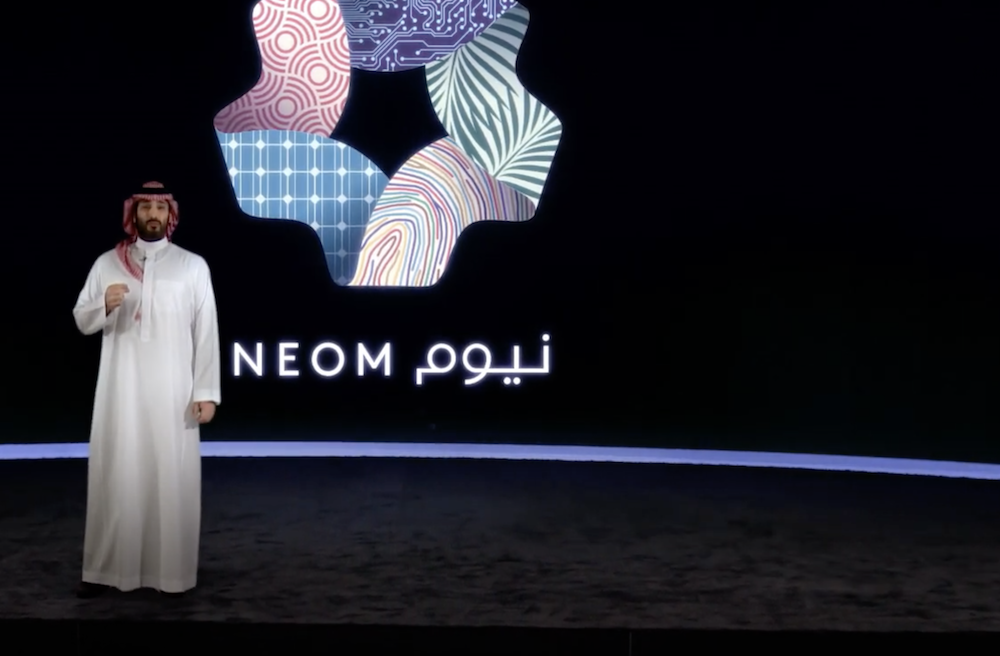RIYADH: Saudi Arabia has announced a huge new zero-carbon city to be built at NEOM in northwestern Saudi Arabia.
The project named “The Line” will be home to a million people and have no cars and no streets, Crown Prince Mohammed bin Salman said in a video released on Sunday.
The city will be a 170 kilometer belt of “hyper-connected future communities,” and will be built around the natural environment, he said.
“We need to transform the concept of a conventional city into that of a futuristic one,” Prince Mohammed said at an event to launch the city.
“By 2050, one billion people will have to relocate due to rising CO2 emissions and sea levels. 90 per cent of people breathe polluted air,” the crown prince said.
“Why should we sacrifice nature for the sake of development? Why should seven million people die every year because of pollution? Why should we lose one million people every year due to traffic accidents? And why should we accept wasting years of our lives commuting?” he asked.

Saudi Crown Prince Mohammed bin Salman announces “The Line” project at NEOM. (SPA)
Later, Al Arabiya quoted the crown prince saying that the infrastructure of the project is set to cost between $100 to 200 billion, and that the project was announced after three years of planning.
The crown prince also said the backbone of investment would come from Saudi Arabia and the Kingdom's sovereign wealth fund – the Public Investment Fund (PIF) – as well as local and international investors for the NEOM project.
Meanwhile, Deputy Defense Minister Khalid bin Salman congratulated King Salman and the crown prince on launching The Line, saying it is “one of the major projects that put people first and employs technology to serve the communities.
“The project drawn up and launched by the crown prince confirms that we are in the heart of the future with a move that precedes words and work that confirms hopes and dreams,” he said in a tweet.
The project is a direct response to some of the most pressing challenges facing humanity, such as infrastructure, pollution, traffic and human congestion, NEOM said.
Construction of the revolutionary city will preserve 95 per cent of nature within NEOM and will commence in the first quarter of this year.
The project forms part of extensive development work already underway at NEOM.
The Line’s communities will be cognitive and powered by Artificial Intelligence and the city will comprise carbon-positive urban developments powered by completely clean energy.
The project will be an economic engine for the Kingdom and will drive diversification in line with the Vision 2030 reform program.
The city will create 380,000 jobs and will contribute SR180 billion ($48 billon) to domestic GDP by 2030, the crown prince said.
Walkability will define life in The Line and essential services such as schools, medical clinics, leisure facilities, as well as green spaces, will be within a five-minute walk.
In addition to this, high-speed transit and autonomous mobility solutions will ensure that no journey will be longer than 20 minutes.






























